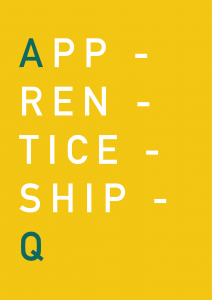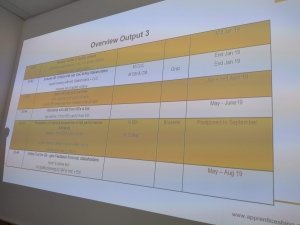The fourth Consortium Meeting was held in Brussels on October 8-9, 2019 and hosted by EURASHE. The first day focussed on the consortium meeting, where the project partners welcomed two new colleagues. The partners finalised the publication of best practice cases and analysed the results of the quantitative survey as well as the conducted focus groups. These activities were framed by discussing the remaining tasks of the last project year and project management activities. During the second day project, partners participated in the joint ApprenticeshipQ and WEXHE project workshop “Enhancing Work-based Learning (WBL) and Entrepreneurship in Higher Education”. The workshop focussed on three topics – WBL Concept & Policy development (moderated by Michal Karpišek), Quality Assurance of WBL (moderated by Alicia-Leonor Sauli-Miklavčič) and Entrepreneurship: a WBL mode of learning (moderated by Robert Wagenaar).
The recent development within higher education has strengthened voices calling for equipping graduates with competences and skills relevant for their civic, personal and professional life which would allow their smooth transition into professional life. It has been shown that such competence development is the most successful in changing realistic professional situations.
The workshop participants shared experiences and approaches related to further development and support of work-based learning and development of entrepreneurial competencies within higher education – the concept, the role of various stakeholders, key principles, role of leaders, active role of students and world of work.
Few statements focussed on WBL developments included the following:
- WBL is expanding into non-traditional areas like physics, biology, humanities, social sciences, etc.
- The conservative approach to the WBL still dominating in the conventional universities.
- WBL has a very important influence on personal development.
- WBL developments facing different issues like policy development, terminology, education (theory/practice) time balancing, requirements for specific programmes.
- Quality Assurance of practical placement is still under development. Innovation in the field is missing quality criteria.
- The responsibility of students is missing in the criteria. Students need to be proactive and responsible for WBL. In innovation of education the student has also responsibility for the quality of their own learning. It was agreed that all three stakeholders should be involved and contribute, otherwise “the triangle collapses”.
Vaidotas Viliunas, 2019-11-09



















